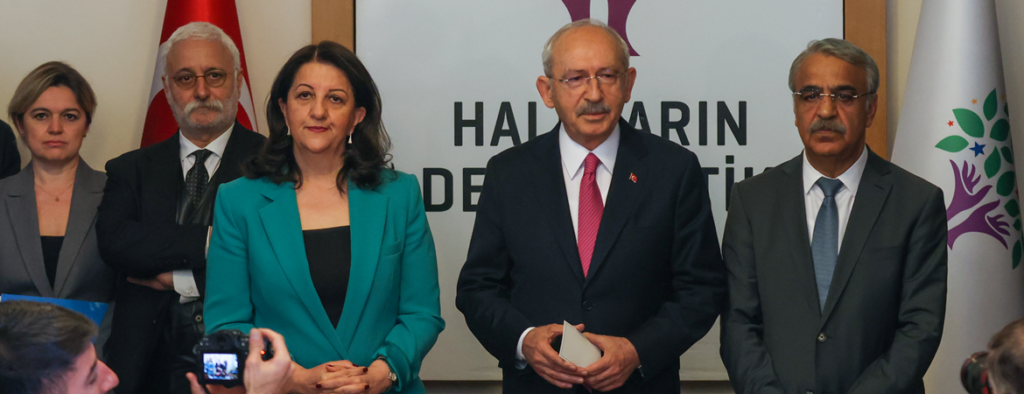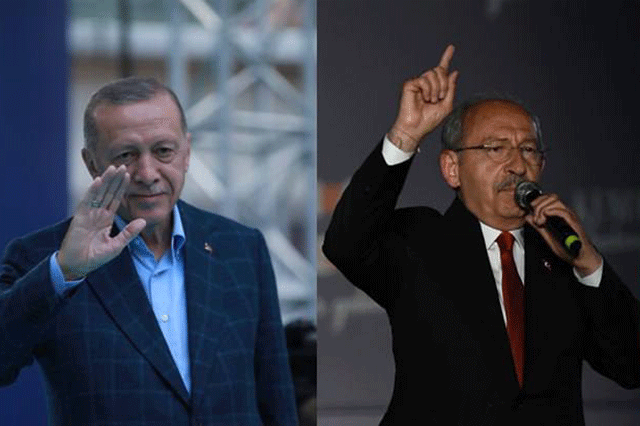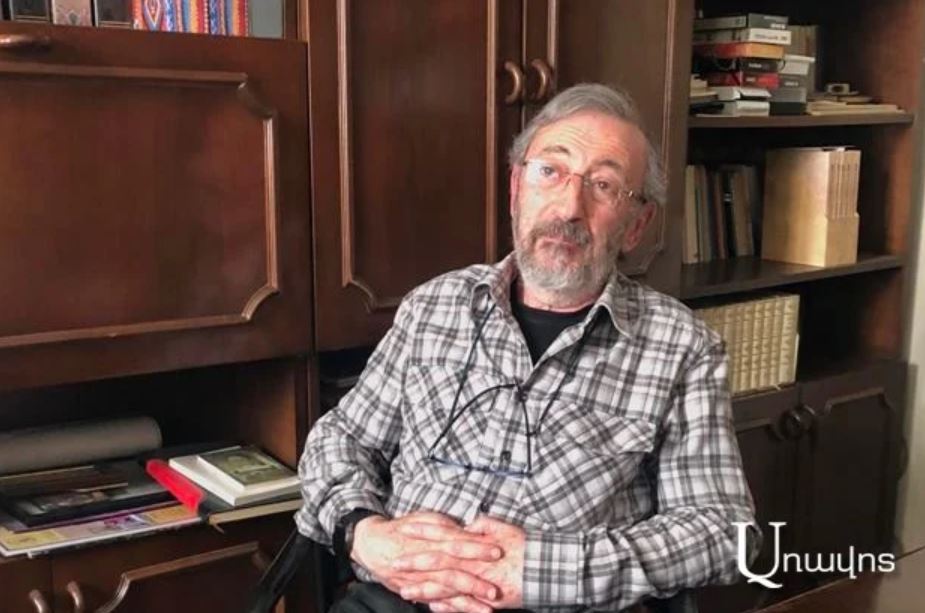Yeghia Tashjian
On March 22, 2023, following a meeting with CHP leader and joint opposition presidential candidate Kemal Kılıçdaroğlu, the pro-Kurdish Peoples’ Democratic Party (HDP) announced that it will not field a candidate in the May 14 presidential elections in Turkey and will throw its support behind the joint opposition leader against President Erdogan.
Surrounded by her allies and the Kemalist leader, HDP co-chair Pervin Buldan justified her party’s decision arguing that now there is a “historical responsibility” to win over Erdogan. “We are facing a historic turning point that will shape the future of the country and society,” said Buldan. This decision will only boost Kılıçdaroğlu’s position, who is struggling to keep the opposition (known as “Table of Six”) united after some disagreements between the CHP and the nationalist Iyi Party over who will be the joint presidential candidate for the opposition.
Read also
Though the details of the meeting are still not public, the CHP leader has lately been cautiously calling for close cooperation with the HDP. However, the Kurdish side is imposing conditions for any future cooperation. In an interview with Fayik Yagizay, HDP’s representative to the EU, the Kurdish official argued that the HDP can support Kılıçdaroğlu within the framework of certain principles if there is an open, transparent and sincere dialogue and negotiation. However, rather than participating in the Nation alliance (the “Table of Six”), HDP is preparing to go to the elections as the Labor and Freedom alliance, which has been determined as the third way and established with many left democratic parties and platforms. In return for supporting Kılıçdaroğlu, the Kurdish-led party is considering negotiating within the framework of the “Justice, Democracy and Peace declaration” announced by the HDP in September 2021. The main framework of this declaration is as follows: a strong democracy, an independent judiciary, respecting the will of the people, a democratic solution to the Kurdish issue, a peaceful foreign policy, women’s rights and gender equality, a fair economic system, a merit-based administrative system, respect for nature, freedom for the youth and a guarantee of their future, and a democratic constitution.
It is worth mentioning that the HDP has around six million voters, mostly Kurds. Whichever direction they vote, that side may emerge a winner, making the Kurds the kingmakers in Turkey’s presidential election. However, the government of AKP had calculated this risk and jailed many HDP supporters from the leftist and liberal camp, alienating many scholars and activists to ensure that the party does not emerge as a winner. AKP also jailed the former co-chair of the Party Salahattin Demirtas, who has been behind bars since November 2016. The European Court of Human Rights has called for his release. To control its grip in Kurdish-populated areas, many HDP-elected mayors in southeast Turkey have been replaced by government-appointed trustees.
HDP is also facing the risk of closure from the Constitutional Court. For this reason, the party decided that it will run under the banner of the Green Left Party and Labour and Freedom Alliance to circumvent a potential closure and political ban.
In an interview with the Weekly, Jiwan Souz, a journalist and expert on Turkish issues, argued that two important factors have pushed cooperation between HDP and CHP. There is already a dialogue between HDP and the leader of CHP; the latter tried to bring the HDP into the “Table of Six.” Second, AKP’s harsh measures toward the Kurds have closed the door to any cooperation with HDP. Erdogan may continue and escalate his policies against the Kurds to attract nationalist votes. Some analysts also argue that Turkey may declare a limited military operation in northeastern Syria to reach this aim.
Hence, the concern over additional oppression toward the Kurds and the CHP leader’s willingness to cooperate due to voting concerns have pushed both sides to seek compromise and campaign against President Erdogan.
If AKP is ousted, HDP has put forward certain foreign policy proposals. According to Yagizay, HDP supports a peaceful approach. The representative welcomed Turkey’s rapprochement with the West, Syria and Armenia. However, he said that this “normalization” should not be conditioned on hostility toward the Kurds. “As a party, we support the democratization of Turkey and its membership in the European Union,” he said. “Of course, provided that it complies with the Copenhagen criteria, which are the main political criteria of the European Union.”
Yagizay added that “one reason why the Syrian war has dire consequences is Turkey’s policy, because Ankara with its current policy is preventing the Kurds in Syria from obtaining any rights at all costs and blocking any attempt for any possible status for the Kurds in Syria.” He said that HDP supports the normalization of relations with Syria on the basis of abandoning this policy, ending the war in Syria, adopting a democratic and inclusive constitution, and respecting the establishment of a system based on the rights of all ethnic and religious groups in Syria.
Regarding the South Caucasus, HDP’s representative to the EU said that they support a peace process and normalization with Armenia, “which should depend on Turkey’s recognition of the Armenian Genocide in the light of historical facts and fulfilling its responsibilities. As HDP, we will be happy if Turkey accepts this responsibility and normalizes relations with Armenia.”
Kurds will be key voters in the upcoming Turkish presidential and parliamentary elections. No one could have imagined that, on the centennial of the Turkish Republic, the Kemalists would seek cooperation with the Kurds to oust the Islamist AKP. This time, unlike in 1923, the Kurds are no longer in favor of the “Caliphate,” but they are seeking to restore the parliamentary order and build a democratic and pluralistic society in Turkey. The question is whether the Kemalists, if they oust AKP, keep their promises and deepen their cooperation with the Kurds and solve the Kurdish issue in Turkey or once again adhere to their nationalistic position, abandon the Kurds to mobilize Turkish nationalists and push their party agenda forward at the expense of minority rights.

























































